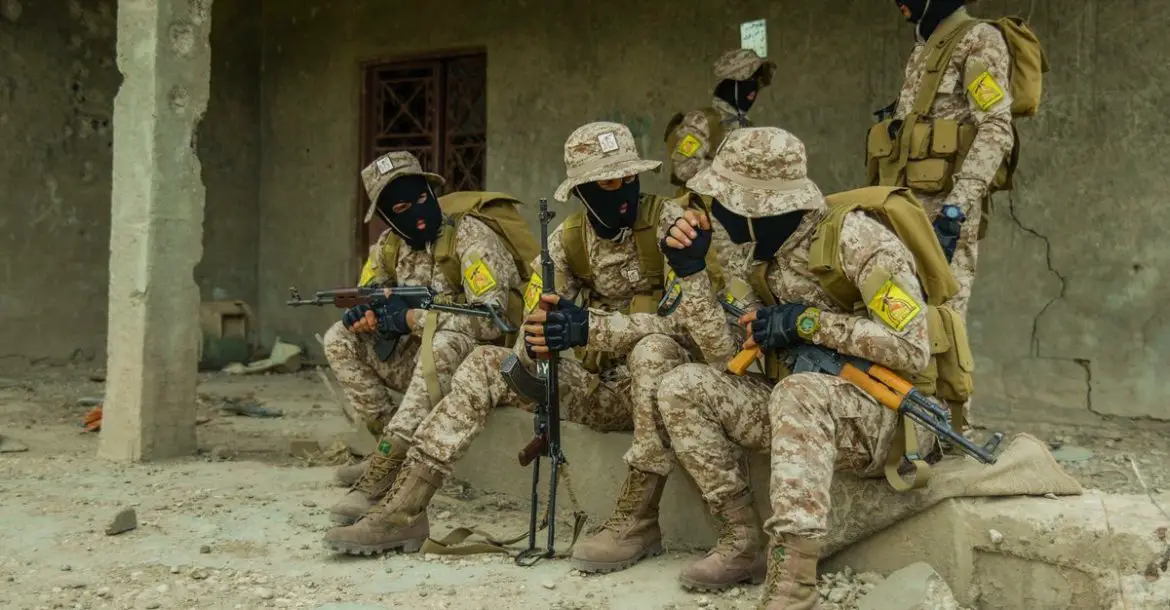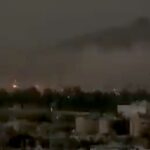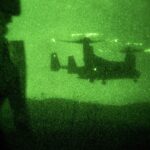The Iraqi Parliament has voted to expel US and Coalition forces from Iraq. The draft resolution will force the Iraqi Government to cancel the request of assistance submitted to the Coalition in 2014 to fight ISIS. If enacted, the resolution will force all foreign forces participating in the Coalition against ISIS to leave Iraq permanently and cease operations in Iraqi airspace. Iraq’s “care-taker” Prime-Minister Abdul Mahdi advised the MEPs to vote in favor of the resolution.
Despite boycotts from Kurdish and some Arab Sunni parties, the Iraqi Parliament met the necessary majority of 165 MEPs due to massive mobilization from the ruling Coalition led by Saairun and Fatah, and other smaller factions.
BAGHDAD’S RULING COALITION
Saairun (“Alliance towards reform”) is an electoral coalition between the Sadrist Integrity Party, led by Shiite cleric Muqtada al-Sadr, and the Iraqi Communist Party. The alliance is “shepherd” by Muqtada al-Sadr himself, who led Jaysh al-Mahdi (“Mahdi’s Army), the largest anti-American Shiite militia, prior to 2011. While Jaysh al-Mahdi was disbanded in 2008, al-Sadr still commands several major paramilitary units such as “Saraya al-Salam” (Peace Brigades), which are part of the Popular Mobilization Units (PMUs). Despite having close ties with Iran, al-Sadr was recently seen as a voice for Iraqi sovereignty and unity, rejecting both US and Iranian hegemony over Baghdad. Saairun won the 2018 legislative election with 14 percent and received 54 seats in Parliament.
Sadr (R) attends an Ashura ceremony in Tehran with Supreme Leader Ayatollah Khamenei [Getty]
Fatah is a coalition of the political organisations linked to several key PMUs, including major pro-Iranian groups such as the Badr Organization (BO), Kata’ib Imam Ali (KIA) Kata’ib Hezbollah (KH) and Asab al-Haq (AAH) – the last two being US-designated Foreign Terrorist Organizations (FTO). Although expect to win the 2018 elections, Fatah finished second with 13,8 percent of the votes. After five months of negotiations, Fatah managed to form a ruling coalition with Sadr’s Saairun, the Kurdistan Democratic Party (KDP) and other smaller factions. The fragile coalition appointed Abdul al-Mahdi as a compromise PM.
VOTE UNDER PRESSURE
Following the United States’ Joint Special Operations Command (JSCO) air strike that killed IRGC-QF Major-General Qassim Soleimani, PM Mahdi called for an emergency Parliamentary session. PM Mahdi slammed the United States for acting outside its military mandate – training Iraqi forces and fighting ISIS – and using Iraqi airspace without the Government’s approval.
In the meanwhile, Fatah was drafting a resolution to cancel the Coalition’s military mandate in Iraq and eject the US forces out of the country. In the days leading to the Parliamentary session, the PMUs, and in particular KH, warned MEPs that they will publicize the home address those who vote against the bill.

Kataib Helbollah fighters. Image: @WithinSyriaBlog/Twitter
With the exception of Fatah’s representatives, Iraqi MEPs did not take this vote lightly. The implications for Iraq and regional security are significant.
IMPLICATIONS
-
- Expelling the Coalition from Iraq means surrendering Baghdad to Iranian influence. There will be no political counterweight to the PMUs, which will be free to grow into a military-political entity parallel to the Iraqi military and government – akin to Iran’s IRGC – and transform Iraq into a Khomeinist republic.
- The removal of US/ Coalition troops from Iraq will cripple Iraq’s capacity to combat ISIS and stop the terrorist group from reverting back to a para-state actor. Iraqi Security Forces (ISF) will lose the capacity to receive ISR (Intelligence, Surveillance and Reconnaissance), CAS (Close Air Support) and other forms of air support. NATO’s train and equip programs, including “train-the-trainer” modules will also end. With the US gone and Baghdad under the PMUs’ rule, ISIS and Sunni-Shia sectarianism are expected to grow.
- The void in the ISF’s capabilities and defense capacity could be filled by a third party such as Russia, which will likely try to take advantage of the situation. In addition, the IRGC will be free to help the PMUs develop an air wing, equipped with Iranian-made loitering drones/ expendable-unmanned aerial vehicles (X-UAVs) and surface-to-air (SAM) missile systems.
- The IRGC will also be free to deploy advanced striking capabilities on Iraqi soil (e.g. cruise missiles, ballistic missiles) and enable the PMUs to autonomously operate them. This will only increase tensions with Israel and the Gulf States.
- The vote does not not mean that US troops will be forced to leave immediately. However, when they do withdraw, Washington and its Coalition partners will only rely on their few local allies, namely the KDP’s Peshmerga and the DOD-trained Iraqi Special Operations Force (IQSOF), for contingency operations (intelligence and strike support). Kurdish autonomy will be the last pressure tool against an Iranian-controlled Iraqi Government.
- Without a military presence in Iraq, the Coalition will lose most of its established logistics nodes and lines of communications to supply troops in Syria. This will lead to a swift reduction of Coalition’s forces in Syria and ultimately, to a complete withdrawal.
- Russia Bombs Maternity Ward & Children’s Hospital in Mariupol As Part of Siege - 10 March 2022
- T-Intell’s OSINT Training Marks One Year Anniversary - 18 November 2021
- IS-K Never Left the Battlefield - 27 August 2021






